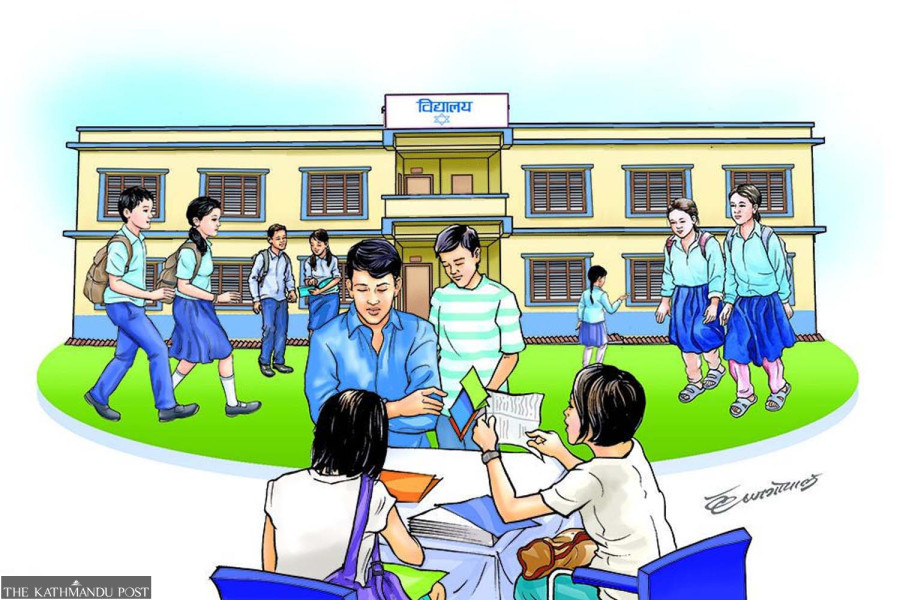Wed, Feb 11, 2026
Editorial
Bungled bill
The School Education Bill must be drafted in national interest through good-faith consultations.
bookmark
Published at : August 12, 2025
Updated at : August 13, 2025 20:23
The Private and Boarding Schools’ Organisation, Nepal and the Higher Institutions and Secondary Schools’ Association Nepal, among other umbrella bodies of private educational institutions, issued a statement on Sunday, demanding revisions to some provisions in the School Education Bill currently under consideration in the Education, Health and Information Technology Committee of the House of Representatives. They have given an ultimatum of Wednesday, warning of protests if their demands are not met. They want removal of provisions related to turning private educational institutions into non-profits and redefining the scope of scholarships in these institutions.
The drafting process of the education bill was mired in controversy after the private institutions lobbied and consequently prevailed in changing provisions unfavourable to them. The government’s initial proposal was to convert private schools into trusts; however, after lobbying by private school operators with top-rung leaders of major political parties, it was agreed that existing schools would stay as companies and new schools could also be registered as the same. In addition, some lawmakers had demanded that private schools’ scholarships should include costs other than tuition fees. But Nepali Congress chief whip Shyam Kumar Ghimire and Education Minister Raghuraj Pant supported private schools, and there could be no agreement. As such, the government’s seeming desire to draft legislation in keeping with national interest has fizzled out.
The recommendations and suggestions of stakeholders are crucial to the lawmaking process. However, it is wrong to give any stakeholder, especially private interest groups, the power to dictate the process. Private schools might have their concerns and they must be able to raise those concerns with relevant authorities, including the legislature. But this kind of lobbying must also happen in good faith and with the country’s larger interest in mind. Also, if the operators of private schools have a strong case, they can make it a subject of public deliberations and debates.
According to Article 31(2) of the Constitution, the state is responsible for compulsory basic and free secondary education for all. Private schools already charge high tuition fees even for primary-level education. The scholarship opportunities they offer are veiled under conditions that still saddle students with a ‘full scholarship’ with hidden costs, including transport and accommodation costs. The implications of expensive education are far-reaching. The government’s idea of converting private schools to trusts (after a reasonable period of time) and making private schools cover the entire cost of education when they offer scholarships was a worthy one.
At the same time, while it is easy to blame the private schools, it is difficult to say whether responsible government agencies tried to take private education providers into confidence while drafting the education bill. Perhaps they didn’t—which also explains the strong reaction of private schools. The representatives of the sector directly impacted by a new piece of legislation must be consulted. We believe a middle-way approach that is acceptable to both sides can still be worked out. For instance, private schools can be given a decent amount of time before they have to convert into trusts. But no one should try to impose their agenda on the other. That is not the democratic way of doing things.
Most Read from Editorial
Editor's Picks
E-PAPER | February 11, 2026
×




 10.12°C Kathmandu
10.12°C Kathmandu













